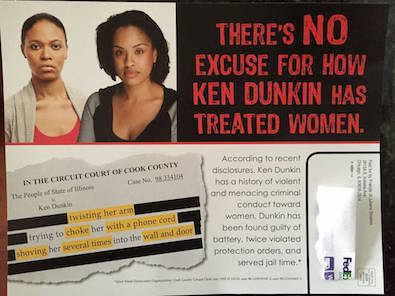Political and social change emanate from persistent pressure for a just world, not settling for what is “realistic” before even getting to the negotiating table.
- Christopher D. Cook
- 6:00 AM ET
- As Bernie Sanders defies expectations with a resounding New Hampshire victory and a virtual tie in Iowa, Democratic Party leaders still insist Hillary Clinton is the pragmatic choice to beat Republicans and bring effective leadership and change—if incremental—to Washington. Clinton and her supporters frame the race, and her appeal, as a matter of “ready on day one” leadership and “get things done” practicality. But what does the record show, and what do leadership and pragmatism really mean?
On the pragmatics of electability, nearly every major national poll consistently shows Sanders equaling or bettering Clinton against all Republicans. Polls show Sanders nearly tied with Clinton nationally and rising. On electability, if anything, Sanders has the edge right now. There is nothing empirical to suggest Clinton’s superior electability—quite the contrary given her loss to Barack Obama in 2008 and her flagging campaign this year. While Clinton might gain more moderate Independents (particularly against a polarizing Republican nominee), Sanders can inspire massive Democratic and liberal Independent turnout and likely win over many white working-class swing voters.
Clinton’s most persistent attack—parroted by mainstream media—claims that Sanders’s agenda is perhaps laudable but unrealistic. Moderation is more effective, she claims. However, this is a misreading of American politics and factual comparisons of the candidates’ track records.
The Clinton pragmatism frame is a strangely naïve and fatalistic misjudging of political culture and dynamics. During most of his eight years in office, President Obama has tacked to the center in hopes of bipartisan compromise on everything from gun control to the budget, only to be met by relentless Republican obstruction, even labeled a “socialist dictator.” Republicans did much the same during Bill Clinton’s first term—pushing him more deeply into the political center, where, with plenty of support from Hillary, President Clinton and the Gingrich Congress gutted welfare, enacted a deeply compromised crime bill, and reversed bank regulations (something Hillary is OK with even after the financial crisis).
No matter where a Democratic president is on the spectrum, Republicans block and push rightward. In her campaign, as in the past, Hillary Clinton has compromised her agenda before the political battle even begins.
Based on her record and political positions, it is not credible for Democrats to hope that a Clinton presidency can deliver progressive change. It is not pragmatic to hope that Clinton, by dint of her centrist leanings, can work with Congress on anything other than a centrist agenda—at best. To the extent that she gets things done with a Republican legislature, based on an electoral mandate of centrism, there is zero prospect of progressive reform on Wall Street, corporate accountability, wealth inequality, or campaign finance. In politics, if you demand a mile, you get a foot; demand a moderate inch, and at best, you get a centimeter.
On the other side of the ledger, history shows that political and social change emanate from persistent pressure—organizing and arguing for a more just world, not settling for what is deemed “realistic” before getting to the negotiating table. Remember when gay rights and gay marriage were “unrealistic”? Remember when voting rights, desegregation, and other basic justice were far from “pragmatic”? They became real through years of dedicated, principled, idealism—by insisting the unrealistic become real.
Clinton’s brand of pragmatism surrenders progressive change to centrism.
If liberals and progressives support a $15 per-hour minimum wage, universally accessible health care, fair taxes on corporations and wealth, and meaningful reforms of Wall Street and campaign finance, they should elect a president who actually fights for these things. Sanders has spent his whole political life in pursuit of these ideals, and his campaign has moved these conversations to the fore; Clinton’s record on the other hand shows a consistent pattern of following, not leading on these issues. Clinton’s brand of pragmatism surrenders progressive change to centrism even before negotiations begin.
Change is not, as Clinton has claimed, a matter of “magical” thinking or waving a “wand”—it is about pushing ideas, building movements, and challenging the status quo. Even before the general election, Clinton is campaigning on a deflating and defeatist politics of half-a-loaf “pragmatism,” aiming lower on minimum wage, opposing free college, opposing single-payer health care. With Sanders, there is no question he will push for meaningful progressive change. No candidate can guarantee passage of their platform—but at least Sanders makes change possible.
On the question of leadership, Clinton’s other central campaign theme is her record of experience. As first lady, Clinton failed at health-care reform. She never pushed for single-payer health care and never built a coalition for anything beyond a compromised managed-care system. She also supported three of Bill Clinton’s signature measures, which all proved disastrous: welfare rollback, which unraveled safety-net supports for poor families, low-income women, and millions of working-class Americans; the omnibus crime bill with its three strikes and mandatory minimum sentencing, which contributed to a generation of long-term, largely African American inmates and felons; and NAFTA, which helped impoverish millions of Mexican and Central America farmers, leading to mass migration and social and economic upheaval.
In one undistinguished term as U.S. senator, Clinton opposed gay marriage, voted for the Iraq war, and supported the Patriot Act, among other positions. As secretary of state, while logging impressive global mileage, Clinton pushed for aggressive regime change in Libya, and she worked hard to expand corporate military contracts and fracking abroad. Whether the American public finds her record favorable or not, it is not one of progressive, forward-looking leadership.
Sanders has consistently demonstrated leadership, speaking out, introducing legislation, and laying the political groundwork on a wide array of issues, including: gay rights (long before they gained mainstream support), workers’ rights and union rights, universal single-payer health care, family and medical leave protections, and expansions of Social Security. On nearly every major issue—labor and economic justice, to the Iraq War and the Patriot Act, welfare reform, NAFTA, the Keystone XL pipeline, and the Transpacific Partnership—Sanders has taken clear consistent stands, while Clinton has waffled, backtracked, and leaned to the center.
There is no magic wand to accomplish change. No candidate or president can promise change—he or she can only make it possible. What makes change happen, history and current U.S. politics show, is principled and courageous commitment and integrity—not Clinton’s fatalistic pragmatism, which insists that pushing for more is unrealistic and therefore capitulates before the fight even starts. On the other hand, it is entirely pragmatic to expect a President Bernie Sanders to fight hard for the justice and equality issues he has championed his entire political life—giving these ideas a chance, rather than no chance at all.
ABOVE IS FROM: http://www.theatlantic.com/politics/archive/2016/02/the-pragmatic-case-for-bernie-sanders/462720/




